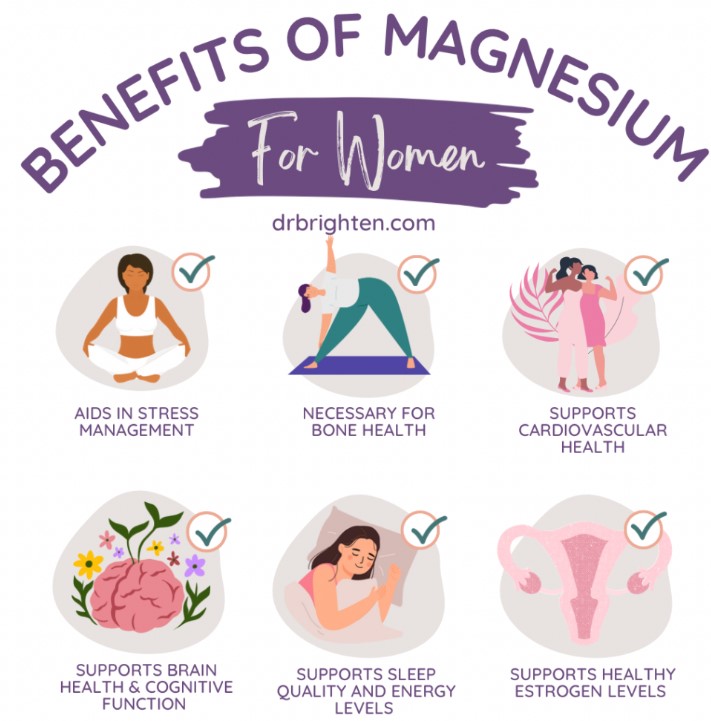BOURSESSENEGAL – Many people overlook the benefits of magnesium, but this vital mineral plays a crucial role in our health and well-being. From supporting muscle function to regulating sleep, magnesium is involved in over 300 biochemical reactions in the body. Understanding its benefits can empower you to make better dietary choices and improve your overall health. In this article, we will delve into the numerous advantages of magnesium, how to incorporate it into your diet, and signs of deficiency to watch for.
What is Magnesium?
A Key Mineral for Your Health
Magnesium is a naturally occurring mineral found in many foods. It’s essential for various bodily functions, including energy production, DNA synthesis, and nerve function. Despite its importance, many people do not get enough magnesium from their diets, which can lead to a range of health issues.
How Magnesium Works in the Body
Magnesium acts as a cofactor for many enzymes, facilitating chemical reactions essential for life. It helps regulate muscle contractions, supports cardiovascular health, and maintains normal blood sugar levels. This mineral works closely with calcium and potassium to promote a balanced electrolyte system.
The Numerous Benefits of Magnesium
Supports Muscle and Nerve Function
One of the primary benefits of magnesium is its role in muscle and nerve function. Magnesium helps muscles contract and relax, which is vital for physical activity and overall mobility. Moreover, it plays a key role in transmitting nerve signals, ensuring that your body communicates effectively.
- Muscle Cramps and Spasms: If you experience frequent muscle cramps, increasing your magnesium intake might help alleviate these issues.
Enhances Bone Health
Magnesium contributes to bone health by aiding in the absorption of calcium. It helps maintain bone density, reducing the risk of fractures and osteoporosis as you age. Research suggests that adequate magnesium intake supports healthy bone mineralization.
- Building Strong Bones: Incorporating magnesium-rich foods into your diet can strengthen your bones and support overall skeletal health.
Promotes Heart Health
Another significant benefit of magnesium is its positive effect on cardiovascular health. This mineral helps regulate blood pressure, maintain a steady heartbeat, and reduce the risk of heart disease. Studies show that individuals with higher magnesium levels tend to have lower rates of hypertension.
- Heart Disease Prevention: Prioritizing magnesium can lead to better heart health and a reduced risk of cardiovascular issues.
Regulates Blood Sugar Levels
Magnesium plays a crucial role in regulating blood sugar levels. It enhances insulin sensitivity and helps manage glucose metabolism. This is particularly important for individuals with insulin resistance or those at risk of developing type 2 diabetes.
- Managing Diabetes: Ensuring adequate magnesium intake can support better blood sugar control and reduce the risk of diabetes.
Aids in Sleep Quality
Struggling to get a good night’s sleep? Magnesium can help. This mineral has a calming effect on the nervous system and can promote relaxation, making it easier to fall asleep. Studies suggest that magnesium supplementation may improve sleep quality, especially in individuals with insomnia.
- Tips for Better Sleep: If you’re having trouble sleeping, consider incorporating magnesium-rich foods into your evening routine.
Supports Mental Health
Research indicates that magnesium may play a role in mental health. Low magnesium levels have been linked to increased symptoms of anxiety and depression. By ensuring you get enough magnesium, you may support better emotional well-being.
- Mood Regulation: Incorporating magnesium into your diet can help balance mood and reduce feelings of anxiety.
How to Incorporate Magnesium into Your Diet
Magnesium-Rich Foods
To reap the benefits of magnesium, focus on incorporating foods that are rich in this essential mineral. Here are some excellent sources:
- Leafy Greens: Spinach, kale, and Swiss chard are all high in magnesium.
- Nuts and Seeds: Almonds, pumpkin seeds, and cashews provide a substantial amount of magnesium.
- Whole Grains: Brown rice, quinoa, and whole wheat bread are good options.
- Legumes: Beans, lentils, and chickpeas are not only high in protein but also rich in magnesium.
- Dark Chocolate: A delicious way to get magnesium—just choose varieties with at least 70% cocoa.
Supplements: When to Consider Them
If you struggle to get enough magnesium through diet alone, supplements can be a beneficial option. However, it’s essential to consult with a healthcare provider before starting any supplementation, as too much magnesium can cause digestive issues and other health problems.
- Choosing the Right Supplement: Magnesium citrate and magnesium glycinate are two well-absorbed forms that may be worth considering.
Signs of Magnesium Deficiency
Recognizing the Symptoms
Being aware of the signs of magnesium deficiency is crucial for maintaining health. Some common symptoms include:
- Muscle cramps or spasms
- Fatigue or weakness
- Irregular heartbeat
- Nausea or loss of appetite
- Mood changes, such as anxiety or depression
When to Seek Help
If you suspect you may be deficient in magnesium, it’s essential to consult a healthcare professional. They can perform blood tests to assess your magnesium levels and recommend appropriate dietary changes or supplements.
Conclusion: Embrace the Benefits of Magnesium
The benefits of magnesium are vast and essential for maintaining overall health. From supporting muscle function and heart health to promoting better sleep and mental well-being, magnesium plays a pivotal role in our daily lives. By incorporating magnesium-rich foods into your diet and being aware of deficiency symptoms, you can take charge of your health.
Whether you’re looking to improve your physical performance, enhance your sleep quality, or support your mental health, magnesium is a crucial mineral to consider. Make it a priority in your diet, and embrace the numerous benefits it offers. Remember, your health is in your hands—empower yourself with knowledge and take steps toward a healthier you!
REFERENCE : pandawa77



